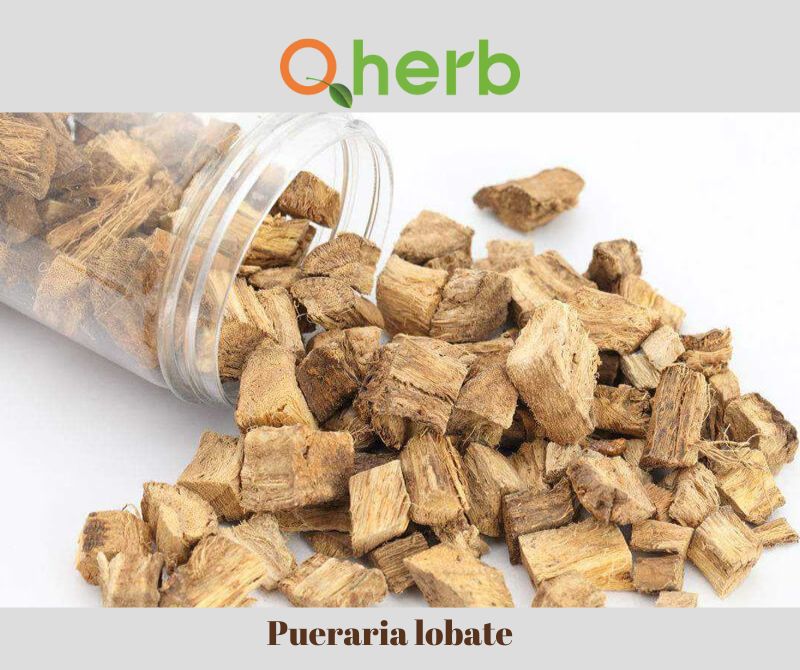Pueraria lobate – Applications and uses
The kudzu is an ornamental plant native to Southeast Asia. It is a climbing and invasive legume, with huge roots that once dehydrated produce a very white starch powder. It is a natural thickener used since ancient times in the kitchen and as a medicine, because it has great medicinal properties.
It is used in kitchen and pastry to provide texture. It is dissolved in cold water, broth or juice and boiled over a low heat, stirring constantly for five minutes, until it acquires a consistency of gelatin. It is used in soups, creams, stews, fillings, sauces or jams. Thanks to its neutral flavor, it combines both sweet and savory, and is very suitable with miso and soy sauce. A teaspoon of kudzu is equivalent to a tablespoon of corn starch.
Nutritionally it provides carbohydrates, fiber, minerals and flavonoids. Among its components we find saponins, isoflavones, phytochemicals such as coumarins and daidzein, which is anti-inflammatory and antimicrobial.
Evidence indicates that kudzu can improve the signs and symptoms of unstable angina (chest pain), of insulin resistance and also has a positive effect on cognitive function in postmenopausal women. However, most studies have methodological deficiencies and used small sample populations.
Chinese healers have used pueraria lobata benefits for the treatment of high blood pressure, chest pains and to decrease the anxiety of alcohol consumption. Research indicates that puerarine (an ingredient in kudzu) can increase blood flow to the heart and brain, which explains certain traditional uses that are given.
Some of its applications are:
Intestinal and digestive disorders. It balances the intestinal flora, restores peristaltic mobility and regenerates the intestinal villi. It is beneficial in case of constipation, diarrhea, gastroenteritis, irritable bowel syndrome. It improves the absorption of nutrients and activates the immune system. In ulcers or heartburn protects and heals your internal mucosa.
Cardiovascular diseases. It acts as an antihypertensive, reduces triglycerides and LDL in plasma and increases vasodilation.
Brain disorders. Its vasodilator action favors irrigation Reduces stress and insomnia. It is useful in the treatment of headaches and migraines. Improves cognitive ability in dementia and Alzheimer's.
Respiratory disorders and infectious processes. Softens the pulmonary mucosa and is very useful in colds, coughs, bronchitis, asthma and allergies with rhinitis. In case of flu, it reduces fever, promotes perspiration and calms congestion and associated muscular pains.
It is used in alcoholic detoxification cures. Its powder has a deterrent effect. The pueraria lobata benefits and relieves the effects of hangovers, detoxifies the liver and prevents cirrhosis. Because of its anxiolytic capacity, it is also useful in the detoxification of other drugs and tobacco.
Its richness in fiber slows down the absorption of glucose. Its vasodilator effect improves vision and protects the cardiovascular system.
Evidence:
The uses in humans or animals have been tested and is following. The safety and efficacy of these have not always been demonstrated. Some of these situations are potentially serious and should be evaluated by a qualified medical provider.
Alcoholism
Although preliminary evidence indicates that kudzu may be useful for the treatment of alcoholism, further research in humans is required to provide definitive recommendations.
Cardiovascular disease/angina
Kudzu has a long history in the treatment of cardiovascular (heart) disorders, such as angina (chest pain), acute myocardial infarction (heart attack), and heart failure. Preliminary research indicates that kudzu can reduce the frequency of angina events in human subjects. Further research is needed in this area.
Deafness
One study investigated the clinical effectiveness of kudzu in the treatment of sudden nerve deafness. Additional evidence is required to confirm the results.
Diabetes
Preliminary evidence indicates that puerarine, an ingredient of kudzu, can improve insulin resistance (a situation in which the cells of the body become impervious to the effects of insulin and the normal response to the amount of insulin is decreased). As a result, higher levels of insulin are required for it to have an effect.
Diabetic retinopathy
Preliminary evidence indicates that injections of puerarine (an ingredient of kudzu) can reduce blood viscosity, improve microcirculation, and have a positive therapeutic role in diabetic retinopathy. Good design clinical tests are required to confirm such results, before offering recommendations.



 Healthier Future
Healthier Future